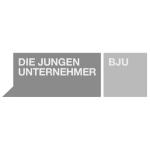In major crises, almost all areas of life are affected at once. The devil always shits on the biggest pile. Such crises occur on a personal level, in companies or – as is the case right now – even on a global level. How do we manage not just to survive in such an all-encompassing crisis, but also to perform at our best so that the cash cow shits on us and not the devil? The longer the crisis lasts, the more critical the situation becomes. Not only for people and companies that were already slowly reaching their limits or operating in highly disruptive markets. No organization can avoid change. There are many studies that have examined the success of change measures in organizations in the past. What has become particularly clear is that three quarters of transformation efforts fail, do not bring the expected benefits or are abandoned altogether (Harvard Business Review, November/December 2017). But even many who were previously doing well are now fighting for their very survival. Can we still talk about high performance and even expect it – from ourselves, our employees, customers and our service providers? My clear conviction: Yes, now more than ever!
High performance – what is that anyway?
To do this, however, we should take a closer look at the term, because in the beginning there was the word. Words, language and communication in general are the most important instruments for us as people and as a society to exchange ideas, to communicate and to create a solid basis for our joint work and activities. Many terms have strange careers – some completely unnoticed, others are the subject of real wars over meaning. Often, in the end, an empty shell remains and you really have to create a completely new word for the original meaning. “Success” is also such a term for me. My work is actually always about increasing results and success, but I don’t want to use it anymore. If anyone has a good idea for a new creation, they are very welcome to contact me. High performance requires a new understanding of work that creates added value and thus productivity for the organization not only through operational performance, but also through the mental and emotional activities of employees. The foundations of a high performance organization are: ambition, vision and determination. High performance thus represents the willingness and ability of an organization and its employees to continuously achieve outstanding performance (Porsche Consulting Group, Factsheet High Performance Organizations). On the way to a high performance organization
Employees need the opportunity to develop their potential, to use it for the organization with a lasting effect and to materially demonstrate it through concrete actions – in other words, to be successful. High-performance performance does not mean that people wear themselves out to the point of burnout for their company or for financial gain. For me, a high performer is rather a person who knows how to use the means of the market economy to be able to live more self-determined, emancipated and free. Wolf Lotter uses the term civil capitalist for such a person. For me, material success is an essential part of it, because only then do we get the freedom we need to be creative and the means to achieve something really great. And something that in turn serves the general public and the society in which we live. A sustainable capitalism, so to speak, with people and their development at the center. If our actions do not materialize in results, we have to do something differently. High performance in times of crisis
A major disadvantage that we are currently experiencing – the lack of security – is also a huge opportunity. Now some of you will say, opportunity!? According to the current study by the review portal Glassdoor, more than half of employees in Germany are afraid of losing their jobs due to the current situation. 20 percent are at least worried about their own jobs. Job security is therefore an important issue. And yet: nothing is just either/or. The both/and approach, of which I am a great advocate, applies here too. We no longer have the feeling of being safe. However, this feeling was an illusion even before. Anyone who still says that they have everything under control will be declared insane. At the same time, all distractions, all material pleasures, all socially established mechanisms disappear. We are suddenly reduced, but at the same time everything is condensed into the essential things.
In major crises, almost all areas of life are affected at once. The devil always shits on the biggest pile. Such crises occur on a personal level, in companies or – as is the case right now – even on a global level. How do we manage not just to survive in such an all-encompassing crisis, but also to perform at our best so that the cash cow shits on us and not the devil? The longer the crisis lasts, the more critical the situation becomes. Not only for people and companies that were already slowly reaching their limits or operating in highly disruptive markets. No organization can avoid change. There are many studies that have examined the success of change measures in organizations in the past. What has become particularly clear is that three quarters of transformation efforts fail, do not bring the expected benefits or are abandoned altogether (Harvard Business Review, November/December 2017). But even many who were previously doing well are now fighting for their very survival. Can we still talk about high performance and even expect it – from ourselves, our employees, customers and our service providers? My clear conviction: Yes, now more than ever!
High performance – what is that anyway?
To do this, however, we should take a closer look at the term, because in the beginning there was the word. Words, language and communication in general are the most important instruments for us as people and as a society to exchange ideas, to communicate and to create a solid basis for our joint work and activities. Many terms have strange careers – some completely unnoticed, others are the subject of real wars over meaning. Often, in the end, an empty shell remains and you really have to create a completely new word for the original meaning. “Success” is also such a term for me. My work is actually always about increasing results and success, but I don’t want to use it anymore. If anyone has a good idea for a new creation, they are very welcome to contact me. High performance requires a new understanding of work that creates added value and thus productivity for the organization not only through operational performance, but also through the mental and emotional activities of employees. The foundations of a high performance organization are: ambition, vision and determination. High performance thus represents the willingness and ability of an organization and its employees to continuously achieve outstanding performance (Porsche Consulting Group, Factsheet High Performance Organizations). On the way to a high performance organization
Employees need the opportunity to develop their potential, to use it for the organization with a lasting effect and to materially demonstrate it through concrete actions – in other words, to be successful. High-performance performance does not mean that people wear themselves out to the point of burnout for their company or for financial gain. For me, a high performer is rather a person who knows how to use the means of the market economy to be able to live more self-determined, emancipated and free. Wolf Lotter uses the term civil capitalist for such a person. For me, material success is an essential part of it, because only then do we get the freedom we need to be creative and the means to achieve something really great. And something that in turn serves the general public and the society in which we live. A sustainable capitalism, so to speak, with people and their development at the center. If our actions do not materialize in results, we have to do something differently. High performance in times of crisis
A major disadvantage that we are currently experiencing – the lack of security – is also a huge opportunity. Now some of you will say, opportunity!? According to the current study by the review portal Glassdoor, more than half of employees in Germany are afraid of losing their jobs due to the current situation. 20 percent are at least worried about their own jobs. Job security is therefore an important issue. And yet: nothing is just either/or. The both/and approach, of which I am a great advocate, applies here too. We no longer have the feeling of being safe. However, this feeling was an illusion even before. Anyone who still says that they have everything under control will be declared insane. At the same time, all distractions, all material pleasures, all socially established mechanisms disappear. We are suddenly reduced, but at the same time everything is condensed into the essential things.















